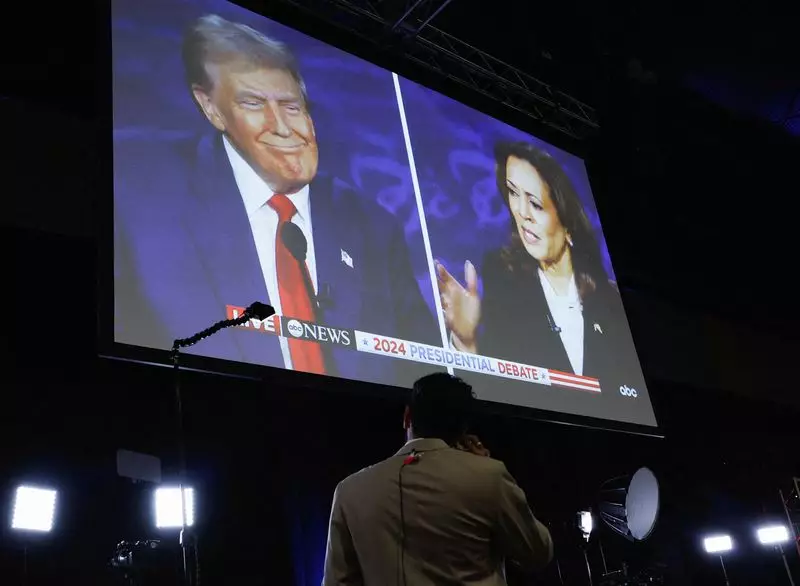Following the highly anticipated debate between Republican Donald Trump and Democratic Vice President Kamala Harris, Wall Street was left grappling with uncertainty. While both candidates clashed on crucial policy issues such as the economy, immigration, and legal matters, investors were disappointed with the lack of clear direction provided. Despite the combative nature of the debate, neither candidate presented strong economic arguments, leaving market participants craving clarity and concrete plans.
PredictIt’s 2024 presidential general election market reflected a shift in sentiment, with Harris’ odds improving to 56% following the debate, while Trump’s odds slipped to 48%. However, the reaction in asset prices was relatively muted, indicating that the debate failed to significantly sway investor sentiment. Stock futures dipped marginally during the debate, with the S&P 500 E-minis down 0.5% and Nasdaq 100 E-minis off 0.6%. The dollar index also slipped by 0.2%, reflecting a lack of conviction in the market’s response to the debate.
Outlook on Election Probabilities and Market Volatility
While some investors perceived Harris as the winner of the debate, the overall impact on market volatility and election probabilities remained uncertain. With both candidates neck and neck in key battleground states, the debate failed to provide a decisive push in either direction. As investors remain on edge about the political landscape, concerns over a softening U.S. economy and the Federal Reserve’s interest rate decisions continue to weigh on market sentiment. The subdued reaction to the debate indicated that market participants are adopting a wait-and-see approach before making substantial bets.
Trump’s promises of lower corporate taxes and a tough stance on trade and tariffs contrasted with Harris’ proposal to raise the corporate tax rate to 28% from 21%. The contrasting views on tax policies and tariff strategies highlight the divergent paths that the candidates would take if elected. While Trump defended his tariffs proposal, Harris criticized it as a burden on the middle class. The impact of these policy differences on market dynamics remains uncertain, as investors navigate the potential consequences of each candidate’s economic agenda.
Conclusion and Future Outlook
Despite the heightened scrutiny on the debate’s outcome, the lack of clear policy discussions and substantive proposals left investors grappling with uncertainty. The marginal shift in prediction markets in favor of Harris indicated a slight tilt in sentiment, but the overall impact on market dynamics remained subdued. As investors continue to monitor the political landscape in the lead-up to the election, the focus will shift to economic indicators, Fed decisions, and global uncertainties that could sway market sentiment in the coming days. The debate served as a temporary distraction for investors, but the broader economic and political challenges ahead will shape market dynamics in the months to come.

